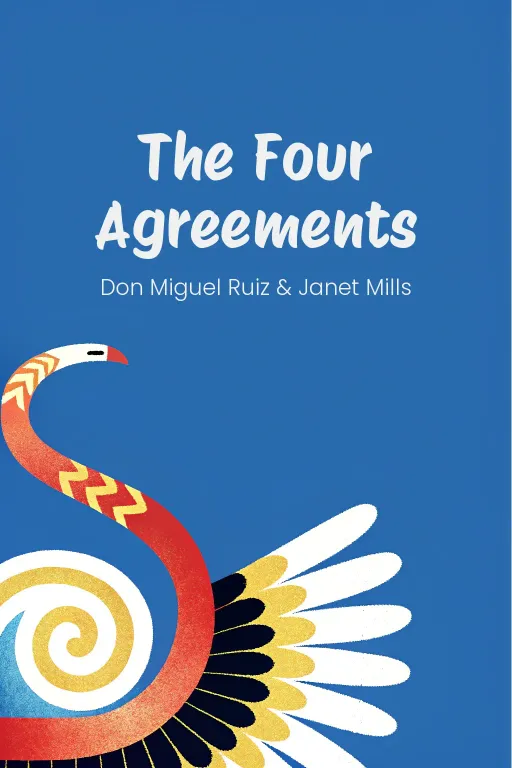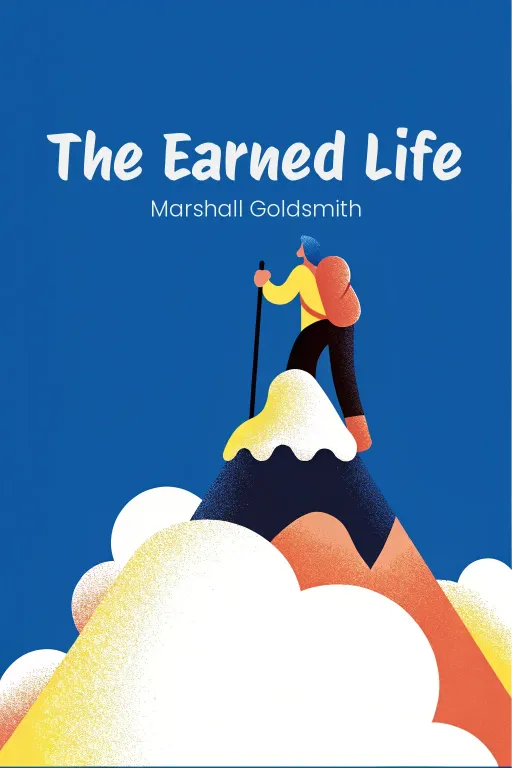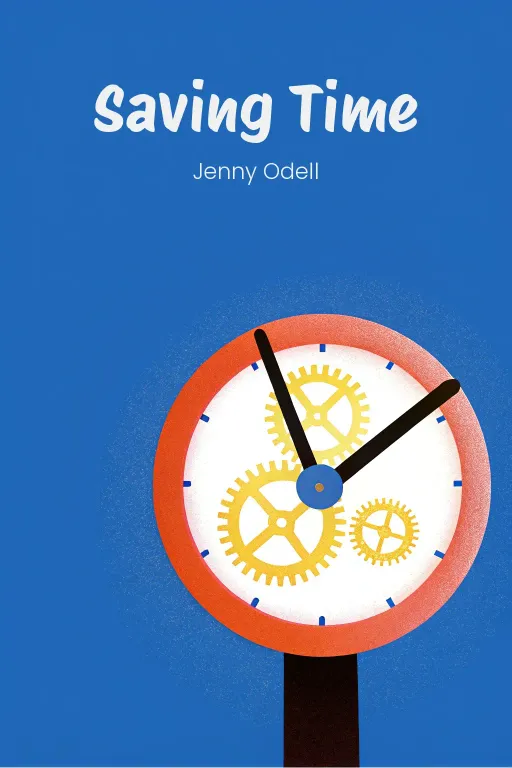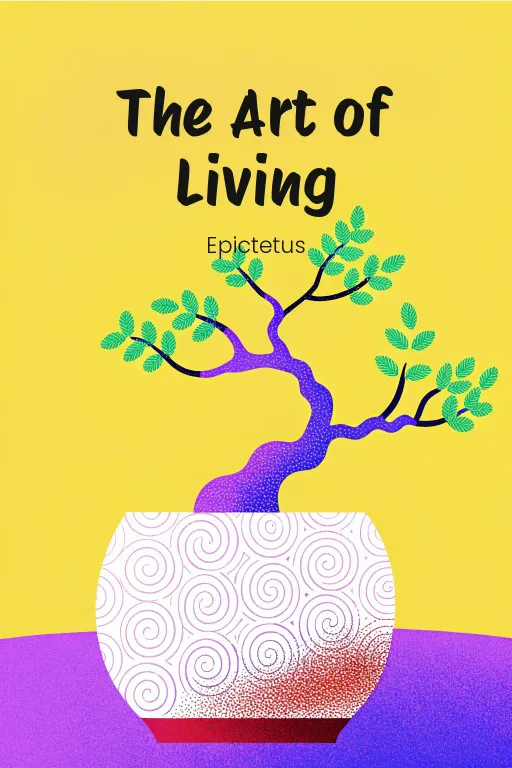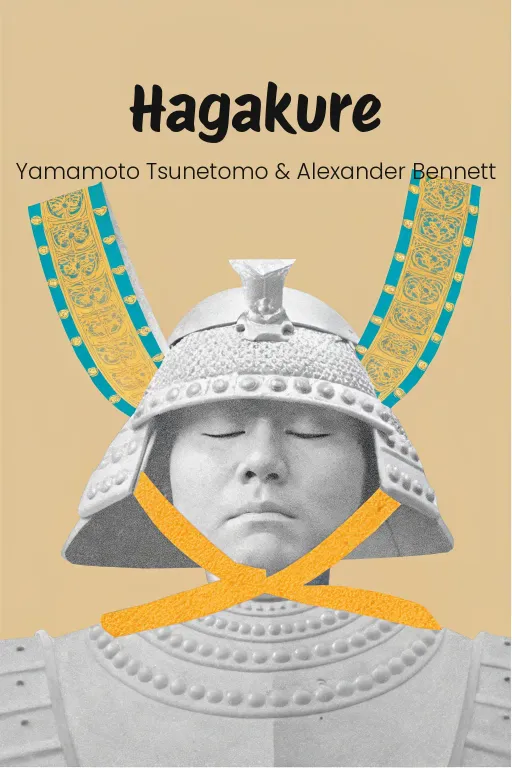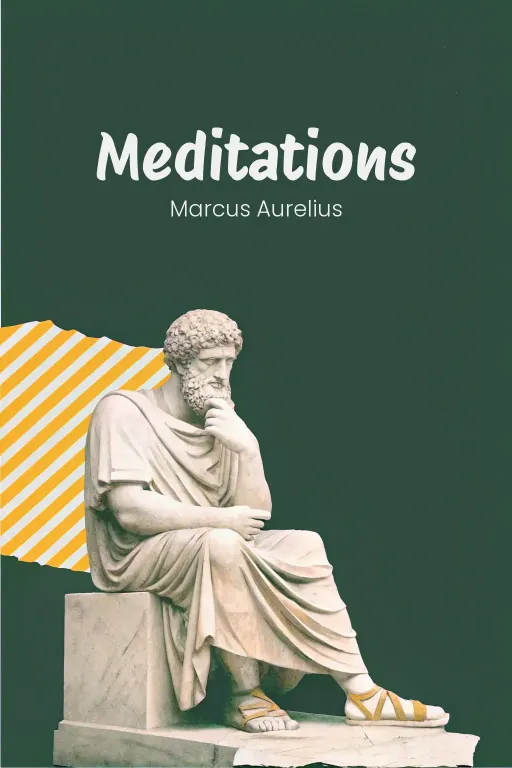
Rewrite Your Life: Break Free & Thrive
Podcast by Beta You with Alex and Michelle
A Practical Guide to Personal Freedom. A Toltec Wisdom Book
Rewrite Your Life: Break Free & Thrive
Part 1
Alex: Hey everyone, welcome! Today, we're diving into how to live a more free and fulfilling life. We'll be using Don Miguel Ruiz's “The Four Agreements” as our guide. Michelle: Liberated? So, does this mean I can finally ditch those Friday night emails without the guilt? Alex: Precisely! It's about breaking free from expectations, both from the outside world and from ourselves. Ruiz taps into ancient Toltec wisdom, giving us four straightforward yet potent agreements. They can basically help us rewrite those rules we've been living by without even realizing it. Michelle: "Simple and powerful" – that sounds suspiciously like marketing hype. What exactly are we getting ourselves into here? Alex: Not selling you anything, Michelle, just sharing some timeless wisdom. Basically, these agreements make us think about how we use our words, how we react to things, the assumptions we make, and what it really means to give something our all. Michelle: Okay, you've piqued my interest. So, what's the plan of attack for today? Alex: We'll start with the core principles of each agreement—think of them as a compass for navigating life. Then, we'll look at what trips us up—those inner obstacles like fear and our own self-doubt. And finally, we'll explore what happens when we do embrace these principles: a life built on love, genuine connection, and real clarity. Michelle: From shackles to soaring, huh? Sounds like a tall order. Let's see if this holds up.
The Four Agreements and Their Foundation
Part 2
Alex: Alright, let's dive in! We're talking about the Four Agreements themselves. They're not just individual tips; they're really interlocking pieces of a larger puzzle. Ruiz argues that as we internalize them, it's like they dismantle the “domestication” we've experienced since childhood. Michelle: Domestication? Like, training a puppy? Only instead of potty training, we're taught to feel shame and crave approval? Alex: Exactly! Ruiz uses “domestication” to describe how society shapes us with rules, punishments, and rewards, teaching us what's “right” or “wrong.” Over time, we absorb these values so deeply that they define how we see ourselves and the world—often through a lens of judgment and fear. Michelle: And these Four Agreements are supposed to rewrite that internal rulebook? Alex: Precisely! They strip away the beliefs that limit us, paving the way for personal freedom. The first one, “Be impeccable with your word,” sets the stage. Ruiz emphasizes that our words are far more powerful than we think. They shape our reality, whether we're using them to build up or tear down. Michelle: Okay, hold on. I get that words matter, but are we talking about the power to “manifest” a dream job or just, you know, not being a jerk? Alex: Honestly, a bit of both. Ruiz sees words as tools of creation. When you speak kindly and with integrity, you build trust and positivity. The opposite, like spreading gossip or criticizing yourself, fuels negativity. So, impeccability means using words to honor yourself and others. Michelle: But what about the words we don't say out loud? I mean, what about that inner critic's greatest hits—are those just as damaging? Alex: Oh, absolutely. Ruiz argues that your internal dialogue is where it all starts. Imagine a child repeatedly called “lazy” or “not good enough.” They'll internalize that until it becomes part of their self-concept. But using positive affirmations or intentionally challenging those negative beliefs can shift the narrative. Michelle: So, instead of thinking, “I'm a disaster in the kitchen,” I could say, “I'm improving with every recipe, even if I burn half of them”? Alex: Exactly! It might feel like a small shift, but over time it reprograms how you see yourself. And when you're impeccable with your word—not just outwardly but inwardly—you're rewriting your foundation. Michelle: Alright, I'll give it a shot. But if my pasta still tastes like cardboard, I'm blaming Ruiz. Alex: And that brings us to the second agreement: “Don't take anything personally.” Ruiz argues this one's key to emotional freedom, because, let's face it, most of us spend way too much time dwelling on other people's opinions or actions. Michelle: Guilty as charged. So, if someone calls me “uninspired,” I'm supposed to just shrug it off as their problem? Alex: Pretty much. Ruiz explains that everyone's operating from their own unique experiences, fears, and insecurities. Criticism—or even praise—is more about them than it is about you. Taking it personally is like drinking poison and expecting someone else to get hurt. Michelle: So when someone cuts me off in traffic, I should resist the urge to yell, “WHO HURT YOU?!” at their bumper sticker? Alex: Exactly! Instead of reacting emotionally, try reframing the situation. Maybe they're rushing to an emergency, or maybe they're just having a bad day. You'll save yourself a lot of unnecessary stress by not absorbing their baggage. Michelle: Easier said than done, right? What about situations that feel pretty personal—like criticism from a boss? How do you not take that to heart? Alex: Great question. Ruiz would argue that even in that case, the criticism reflects the boss's expectations, stress, or worldview—not necessarily your worth. The trick is separating constructive feedback from emotional projection. Ask yourself, “What's really mine to own here?” Michelle: So instead of spiraling into self-doubt, I could just assume their bad mood's got nothing to do with me? Alex: Exactly! It's about keeping your emotional energy centered on your truth—not someone else's storm. Michelle: Fair enough, but speaking of storms, I feel like there's a brewing one with these assumptions you keep teasing. What's next? Alex: That would be “Don't make assumptions,” which is all about preventing misunderstandings. Think about how often we fill in the blanks with worst-case scenarios, or you know, our own insecurities—instead of just clarifying things. Michelle: Like when a friend cancels plans, and suddenly you're convinced they secretly hate you? Not that I've ever, you know, done that... Alex: Exactly that! Ruiz reminds us that assumptions are rooted in fear and imagination. They lead to unnecessary conflict, often because they go unspoken. Instead, clarifying through honest communication can clear things up. Michelle: So it's all about asking instead of assuming. Why does something so obvious feel so hard to do? Alex: Partly because asking requires vulnerability. It means admitting you don't know the full story, and that can be uncomfortable. But the outcome—deeper understanding and connection—is worth it, right? Michelle: Alright, but what about the fourth agreement? I feel like we've got speaking, detaching, and not assuming covered. How does “Always do your best” tie it all together? Alex: This one's about effort, not perfection. Ruiz acknowledges that your “best” changes daily—it's about honoring where you are and giving what you can in that moment. Michelle: So if my best on a lazy Sunday is managing to put a load of laundry, I'm still living authentically? Alex: Absolutely. Doing your best is about releasing guilt or regret and focusing on showing up in your life, no matter the circumstances. It's the glue that helps you practice the other agreements consistently. Michelle: Got it. So, even if the road's messy, as long as I'm trying, I'm on the right track? Alex: Exactly. Each agreement feeds into the next, creating a cycle of self-awareness and growth. Together, they form a blueprint for living with clarity and, well, resilience.
Breaking Old Agreements and Confronting Fear
Part 3
Alex: So, understanding these agreements “really” sets the stage, right? It lets us dig into their practical side and what they “really” mean for us. Because once we get our heads around these four agreements, the “real” work begins: tackling those mental blocks built on fear, you know, the ones that keep us playing small. So, yeah, building on that solid base, we can start breaking down those old patterns and facing our fears. That's ultimately what clears the road to “real” freedom. Michelle: Breaking patterns, huh? Sounds… kind of liberating, but also, let's be honest, a little terrifying. I mean, aren’t these patterns like, well, old security blankets? You know, a bit threadbare, maybe even a little embarrassing, but, hey, familiar is comfy. Alex: Exactly, Michelle, but that comfort is an illusion. These fear-based agreements, according to Don Miguel Ruiz, stem from "domestication." You know, as kids, we're constantly hit with expectations, judgments, and labels that teach us how to act to get people to like us—or to avoid being rejected. And those things just become these automatic agreements that we carry around, completely unconsciously, well into adulthood. Michelle: So, we’re all just walking around with these rulebooks that we didn’t even get to write? That's… encouraging. Alex: A little unsettling, right? Ruiz actually likens these agreements to a parasite. It feeds on negative emotions like, you know, shame, guilt, fear. And inside this parasite, there are two main characters: The Judge and the Victim. Michelle: The Judge and the Victim—that sounds like the title of a gritty crime drama. Let me guess – is the Judge’s job to just tear apart everything we do? Alex: Precisely. The Judge is that inner critic, always picking apart your decisions and mistakes, constantly reminding you that you're just not cutting it. It's that inner perfectionist in all of us, magnifying every tiny little flaw. Michelle: And the Victim is, I’m picturing, curled up in a corner going, “You’re right, Judge. I’m the worst. I’ll just sit here and wallow.” Alex: That’s pretty much it. The Victim internalizes all that criticism, convincing us that we're helpless, unworthy, that kind of thing. Together, they keep us trapped, making us scared to take any risks or even think about changing things. Michelle: Alright, so practically speaking, how do we figure out if we've got one – or both – of these characters running the show in our heads? Alex: Self-awareness is the first key. Recognizing those inner voices for what they "truly" are. Let’s take Alex, for instance. Alex is a software developer who grew up in a family where it was all about being perfect. Alex’s Judge was constantly saying, "Anything less than perfect is a total failure." And whenever Alex fell a little short, the Victim would jump in with, "See? You're just never going to be good enough." Michelle: Oof, that's a brutal one-two punch. So, does Alex just… tell these voices to bugger off? Alex: It's a little more nuanced than that, Michelle. You dismantle these things by observing them without judgment, you know? Tools like journaling can be great for this. Alex, for example, started writing down every time they felt that wave of self-doubt wash over them and found a pattern: the fear wasn't about their actual skills; it was all rooted in things that happened way back in childhood. Michelle: So, journaling’s like detective work, gathering evidence on the Judge and the Victim. What happens next—do we cross-examine them? Alex: In a sense, yes! Ruiz encourages us to question the truthfulness of these beliefs. Ask yourself: "Is this “really” true? What kind of proof do I have to back it up—or to tear it down?" For Alex, listing out past achievements—even the failures—helped them see that success wasn’t about perfection at all, which is what started to break down that old story they kept telling themselves. Michelle: Okay, I see the logic. But what if the emotions tied to these beliefs just feel, I don’t know, overwhelming? Alex: That's where emotional regulation comes into play. The parasite thrives on feelings like shame, anger, or even irrational terror. Alex began practicing mindful breathing when they felt triggered and learned to pause for a moment before just reacting. Gradually, they started shifting from thinking, "I'll never recover from this mistake" to seeing a setback as "This setback is an opportunity to learn something." Michelle: So, instead of instinctively jumping into a pity party, Alex gave themselves a little space to breathe and respond. But let’s be honest—rewriting years of mental scripts isn't exactly a walk in the park. What keeps people from just throwing in the towel halfway through? Alex: That's where willpower and consistency become their best friends. Small, consistent actions make all the difference. For example, Sophia, a marketing professional who was terrified of public speaking after being ridiculed in a school play when she a kid. Her core belief was that whenever she does public speaking, it always ends in humiliation. Now, confronting that fear didn’t happen overnight. Michelle: Ah, the classic fear of public humiliation. So how did Sophia break through it? Alex: Gradual exposure. She started small—speaking alone in front of a mirror, then to a few trusted colleagues. Over time, the act of confronting her fear bit by bit helped her replace that old belief of "I’ll embarrass myself" with something like "I can build confidence with a little bit of practice." Michelle: Baby steps for the win. But I’m guessing there’s still an emotional hurdle to clear, right? Alex: Absolutely. Sophia reframed her setbacks. Instead of dwelling on "I stumbled over my words, so I'm terrible," she started thinking, "That was progress, and I'll be better next time." Positive affirmations, like "I have valuable insights to share," also helped quiet that inner Victim. Michelle: And, if I had to guess, visualizing success is also part of it? Like, imagining herself nailing the presentation instead of picturing tomatoes flying at her head? Alex: Exactly. Visualization preps your mind for success, reducing anticipatory fear. Sophia used it to see herself nailing it before even stepping into that situation. Little by little, her new agreement—"I grow through every experience"—replaced the old one. Michelle: Alright, but all this sounds… exhausting. Isn’t willpower a finite resource? Alex: True, willpower can fluctuate, which is why celebrating those small victories is so crucial. Each little win—whether it's acing a practice presentation or simply plucking up the courage to make that first call—fuels your momentum. And pairing that with consistency, consistently doing your affirmations or journaling, eventually embeds those new beliefs over time. Michelle: So, it’s the sum of all these tiny efforts that eventually shifts your mindset? Alex: Exactly. It's a cumulative thing. And by recognizing those triggers—those moments when the Judge or Victim starts to pipe up—you can preemptively redirect your thoughts and responses. Michelle: Like spotting the storm clouds early so you can grab an umbrella. Alex: Great analogy. Ultimately, this journey is about reclaiming your power—seeing that you're both the author and the editor of your story. Breaking down those old agreements clears the way for new and empowering beliefs to take root. Michelle: Alright, I’ll admit it—the whole idea of starving a metaphorical parasite and evicting my inner drama queens feels… oddly motivating.
Embracing a New Dream: Love and Personal Rebirth
Part 4
Alex: So, having the Four Agreements sorted, it's all about tackling those inner hurdles that stop us from actually using them. This final part is about creating a new dream for ourselves, leaving behind those fears and limitations, and building a life based on love, realness, and purpose. Michelle: Ah, so we’re talking a total life makeover, then? Getting rid of all the old baggage and moving into a place filled with good vibes? Alex: Well, not exactly like that, but I get what you mean. Ruiz calls it a personal rebirth— ditching those outdated beliefs, rewiring our minds, and using intention to create our own "heaven on earth." The goal? Total freedom: living authentically and thriving. Michelle: Okay, sounds nice and poetic, but hang on. My imagination? What's that got to do with this life upgrade? Alex: It's key. Our imagination shapes how we see ourselves and the world, whether we realize it or not. Ruiz reckons that through this lens—powered by intention—we create our reality. When we intentionally steer our imagination away from fear and doubt and towards love and possibility, that's when the magic starts. Michelle: So, our imagination's like the steering wheel of our life. Point it towards joy, and away we go. Point it towards, say, self-doubt, and bam, we're stuck in a ditch? Alex: Exactly! An intentional mindset keeps us on track. It’s being proactive. Take Emma’s story, for instance. She’d always dreamt of being an artist. She started seeing herself as someone who creates purely for joy, not for anyone else's approval. That became her guiding star. Michelle: And I'm guessing walking towards that star wasn't instant, right? Small steps? Alex: Absolutely. Emma began with just 30 minutes of painting after work. That small, consistent action built confidence, which then evolved into sharing her art online, then leading workshops. Her love for creating opened doors—not just career-wise, but in how she saw herself. Michelle: So, imagination's the spark, but intention’s the fuel that keeps it burning? Alex: Exactly. And – in Toltec wisdom – intention is all about love. It’s about focusing your energy on what truly matters to you, without letting fear hold you back. For Emma, every brushstroke honored her creativity—a manifestation of love in action. Michelle: Speaking of fear, though, imagination's not always sunshine and rainbows, is it? I mean, people can really get caught up in worst-case scenarios... Alex: You're right—fear loves to hijack our imagination, often turning it against us. That’s why self-awareness is so important. By looking at the stories we tell ourselves and calling out those fear-driven scripts, we weaken their hold on us. Michelle: So, basically, giving the Judge and Victim in our heads a time-out. But practically, how does that work? Doesn't fear just get louder when you try to ignore it? Alex: It's not about shutting fear up completely – it’s about rewriting the story it tells you. Take Carlos. He was an entrepreneur who believed his success was all he had because he greatly feared failure. He overworked, sacrificed everything, because he wanted to prove his worth. But when he asked himself, “What would I do if I wasn’t afraid of judgment?” that question changed everything. Michelle: I’m guessing the answer wasn’t “work 16-hour days while never seeing my friends,” right? Alex: Exactly. Carlos started making time for friends and spending time on charitable projects – things he actually cared about. He saw that his worth wasn’t tied to outside achievements. By living authentically, he found real joy. Michelle: Okay, so fear’s not the boss anymore. But—and here comes my obligatory skepticism—is there a magical way to undo these deep-rooted identities? What replaces them? Alex: This is where the idea of symbolic death comes in. Ruiz describes it as an emotional shedding—letting go of outdated beliefs, even if it feels uncomfortable, to make space for a rebirth as your truest, freest self. Michelle: Symbolic death? That sounds intense. Are we talking ego-slaying here, or more like Marie Kondo-ing your belief system? Alex: More like a full emotional makeover, Michelle. Think of Sophia’s story—a highly successful executive paralyzed by perfectionism, something she developed because of her past filled with critical voices. For her, letting go of this "flawless achiever" thing felt terrifying, like losing a piece of herself. Michelle: Yeah, I can see how that might make someone wonder, “If I’m not this, then who am I?” Alex: Exactly. But Sophia forced herself into activities like self-compassion and visualization, picturing herself embracing mistakes. Slowly, she let go of the fear behind perfectionism, and in its place, she found joy in imperfection. Michelle: So this “death” leads to a rebirth—becoming who you really are, not the image you've been clinging to? Alex: Yes. And the catalyst in this process is often gratitude. When you focus on the good things in your life—what’s real and fulfilling—you quiet the fear. From there, you build a new foundation of intention and love. Michelle: Okay, what's gratitude's role in all this? It feels a bit online self-help-ish to say "count your blessings," but does it really change anything? Alex: Gratitude changes everything. It’s like a mental reset. When we appreciate even the simplest things, like a peaceful morning or meaningful conversation, it rewires our brains to focus on abundance instead of deficiency. That mental shift transforms how we approach challenges. Michelle: And once you’re in gratitude mode, how do you keep it going? Is it just about jotting down "3 things I'm grateful for"? Alex: That’s a great start, but it’s also about weaving gratitude into how you set goals and reflect. When intentions are aligned with being loving and authentic, the results resonate that much deeper. Wanting to help others, or simply live fully, outweighs achievement for the sake of achievement. Michelle: So, less "drive to succeed" and more "live with purpose"? Alright, it still sounds ambitious, but I can see how living in gratitude and love could make a difference. Alex: It’s not just ambition—it’s transformative. By questioning those old habits and living intentionally, each day becomes a chance to create your own personal heaven. Michelle: Alright, then. Sounds pretty good to me. Even for an old skeptic like myself, I suppose it wouldn’t hurt to imagine a little bit of heaven of earth.
Conclusion
Part 5
Alex: So, to bring it all together, we've unpacked The Four Agreements as, essentially, a guide to personal freedom. From being impeccable with your word to always doing your best, Ruiz really hands us some practical tools to dismantle those limiting beliefs and, you know, really build a life grounded in love, intention, and authenticity. Michelle: Right. And let's not forget the real work involved—breaking those old, ingrained, fear-based agreements. Getting rid of that inner Judge, silencing the Victim, and totally rewriting that inner rulebook... well, that's not exactly a walk in the park. But it really does seem like the payoff is worth the initial discomfort. Alex: Totally. By facing fear head-on and embracing, even cultivating, gratitude and imagination, we can transform not only our thought patterns but the way we live— unlocking a sense of freedom we might not have even realized was within reach. Michelle: So, the real takeaway here is this: you're the one writing your life story. The real question is, are you writing it from a place of fear— or from a place of love? Alex: Beautifully put, Michelle. Let’s leave our listeners with a challenge: Imagine rewriting just one belief that's been holding you back. What could your life actually look like beyond that fear? Michelle: Definitely food for thought, or maybe even a call to action. Either way, thanks for joining us on this deep dive. And until next time, keep questioning things, keep growing, and we'll catch you in the next episode.
